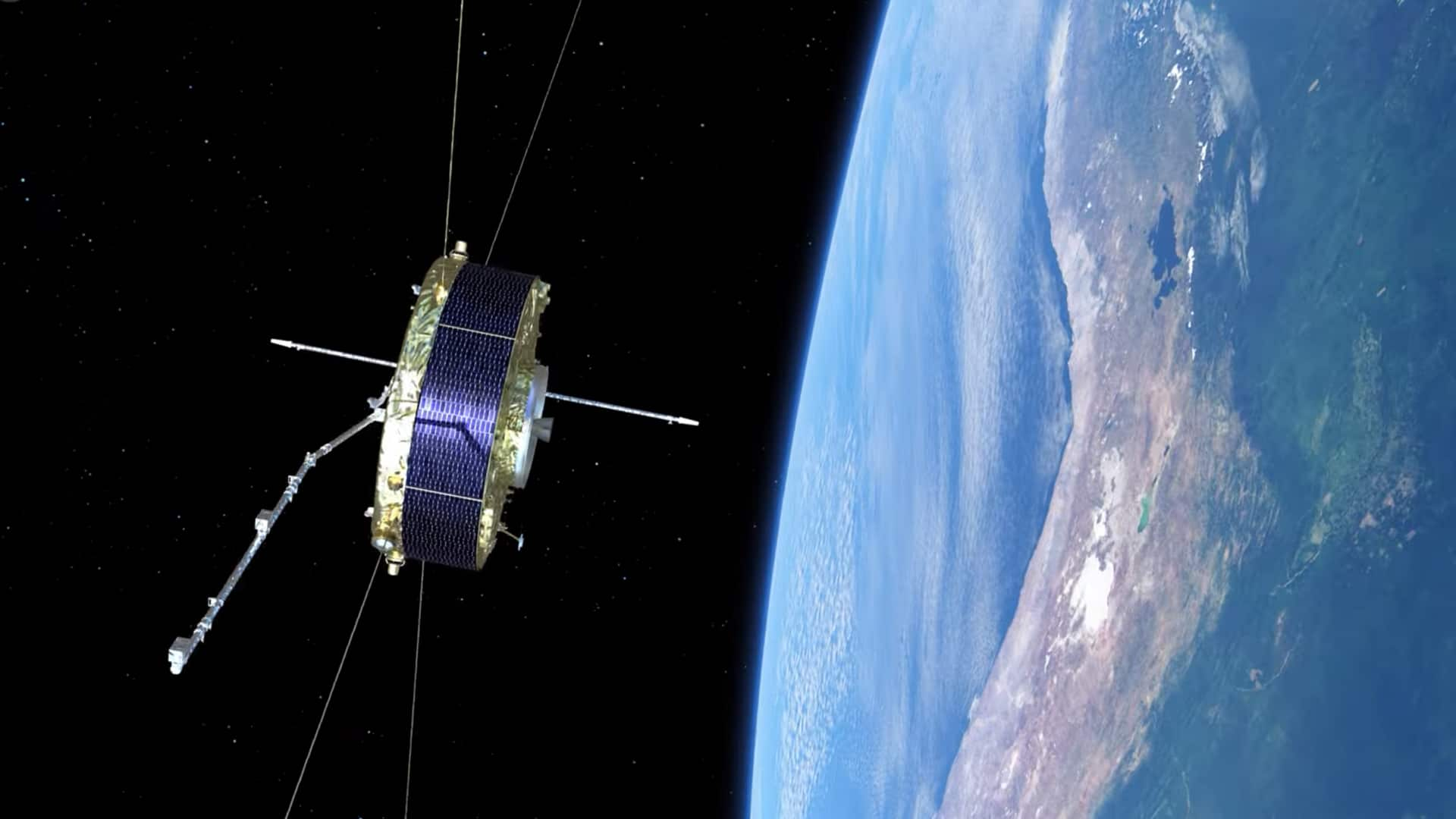
ESA's 24-year-old satellite set to make 'targeted' re-entry tomorrow
What's the story
The European Space Agency (ESA) is preparing for a historic event as its Salsa satellite, after 24 years of service, is set to make a "targeted" re-entry into Earth's atmosphere tomorrow (September 8). This will be the first time that an ESA satellite will descend at a specific time and location. Salsa has been instrumental in studying Earth's magnetosphere since its launch in 2000. The satellite is expected to re-enter at 10:48pm CEST (00:18am IST, September 9).
Re-entry preparation
Salsa's unique orbit enables controlled re-entry
The Salsa satellite, weighing 550kg, is being maneuvered by ground teams to ensure it disintegrates over an uninhabited region of the South Pacific, near Chile. This controlled re-entry is made possible due to Salsa's unique oval-shaped orbit. Bruno Sousa, head of ESA's inner solar system missions operations unit, explained that it was crucial for Salsa to come within approximately 110km during its last two orbits, before descending further into the atmosphere.
Twitter Post
Take a look at ESA's official confirmation
🆕 Latest news on Salsa. The satellite is expected to reenter at 20:48 CEST (18:48 UTC) on 8 September 2024, with an uncertainty of two
— ESA Cluster (@ESA_Cluster) September 7, 2024closer to waving this satellite a goodbye forever 🥹 pic.twitter.com/srvKx8JGEL minutes either way 👇https://t.co/202syKx0LQ
We're getting closer and
Observation plans
ESA to monitor satellite's re-entry and debris
Despite the intense heat and friction caused by atmospheric particles, some fragments of the satellite may survive the descent. The ESA aims to accurately track where Salsa, roughly the size of a small car, re-enters the atmosphere. Due to its age, tracking this phase is challenging as it lacks modern technology like a recording device. A plane will be deployed at an altitude of 10km to observe Salsa's disintegration and track any falling debris.
Mission conclusion
Cluster mission nears end with satellite re-entries
Salsa is part of the ESA's Cluster mission, which also includes three other satellites scheduled for similar re-entries in 2025 and 2026. Through these events, the agency aims to identify materials that do not disintegrate in the atmosphere. This knowledge will aid future satellite designs that can be completely vaporized upon re-entry, reducing space debris and potential risks to Earth's population.
Debris reduction
Commitment to reducing space debris
The ESA has expressed concern over space junk, which consists of defunct satellites and remnants from other missions. In 2023, the agency committed to a "zero debris" policy for its missions starting from 2030. Benjamin Bastida Virgili, ESA's space debris system engineer, highlighted the risks posed by space junk in orbit and during re-entry into Earth's atmosphere. However, he reassured that designing satellites that fully disintegrate will eliminate any risk to the population.